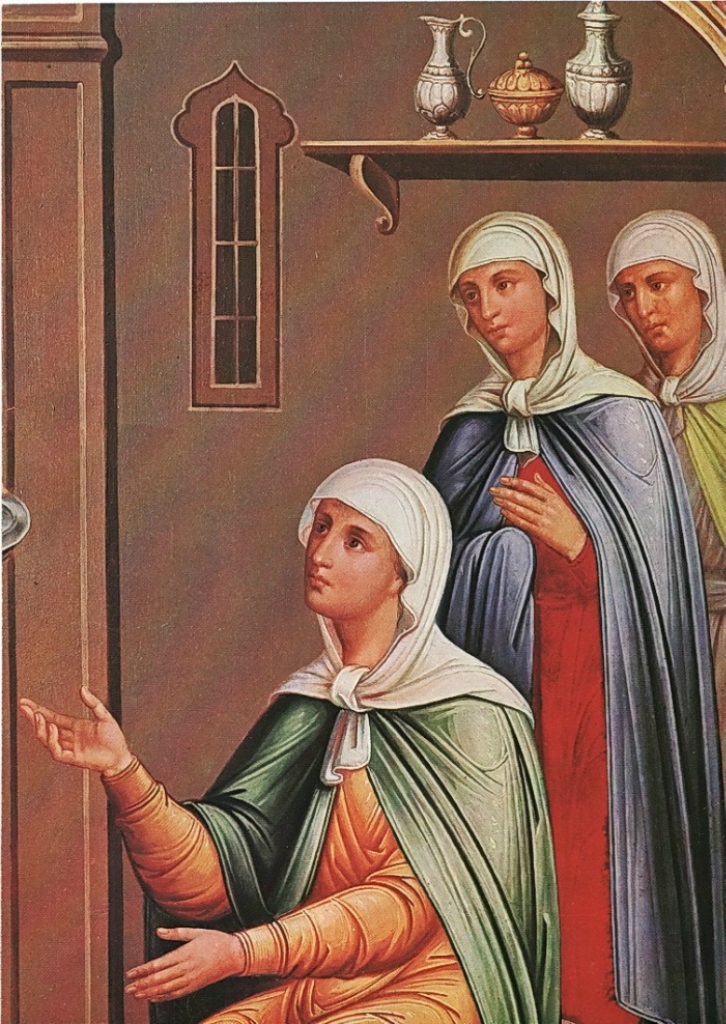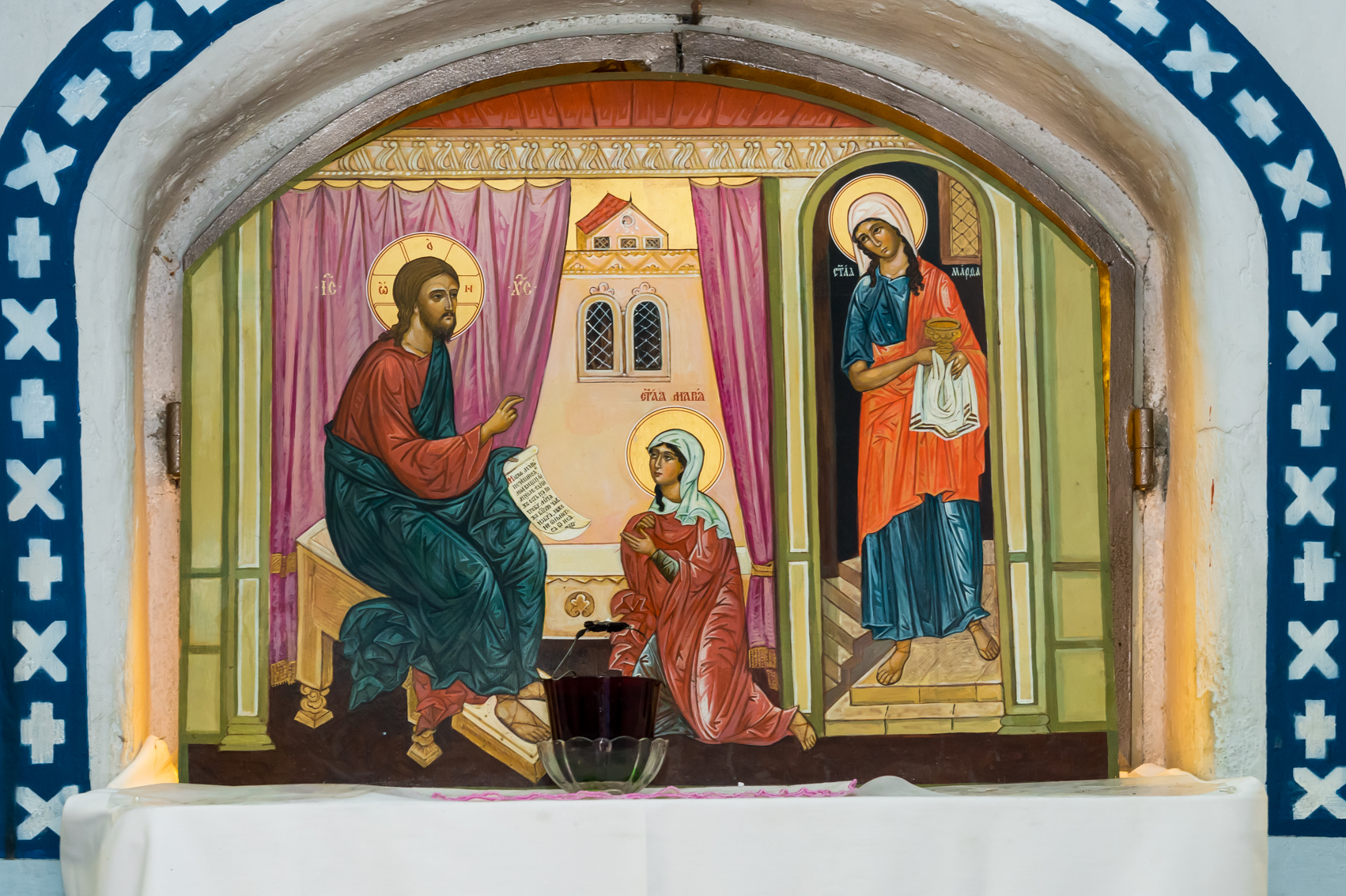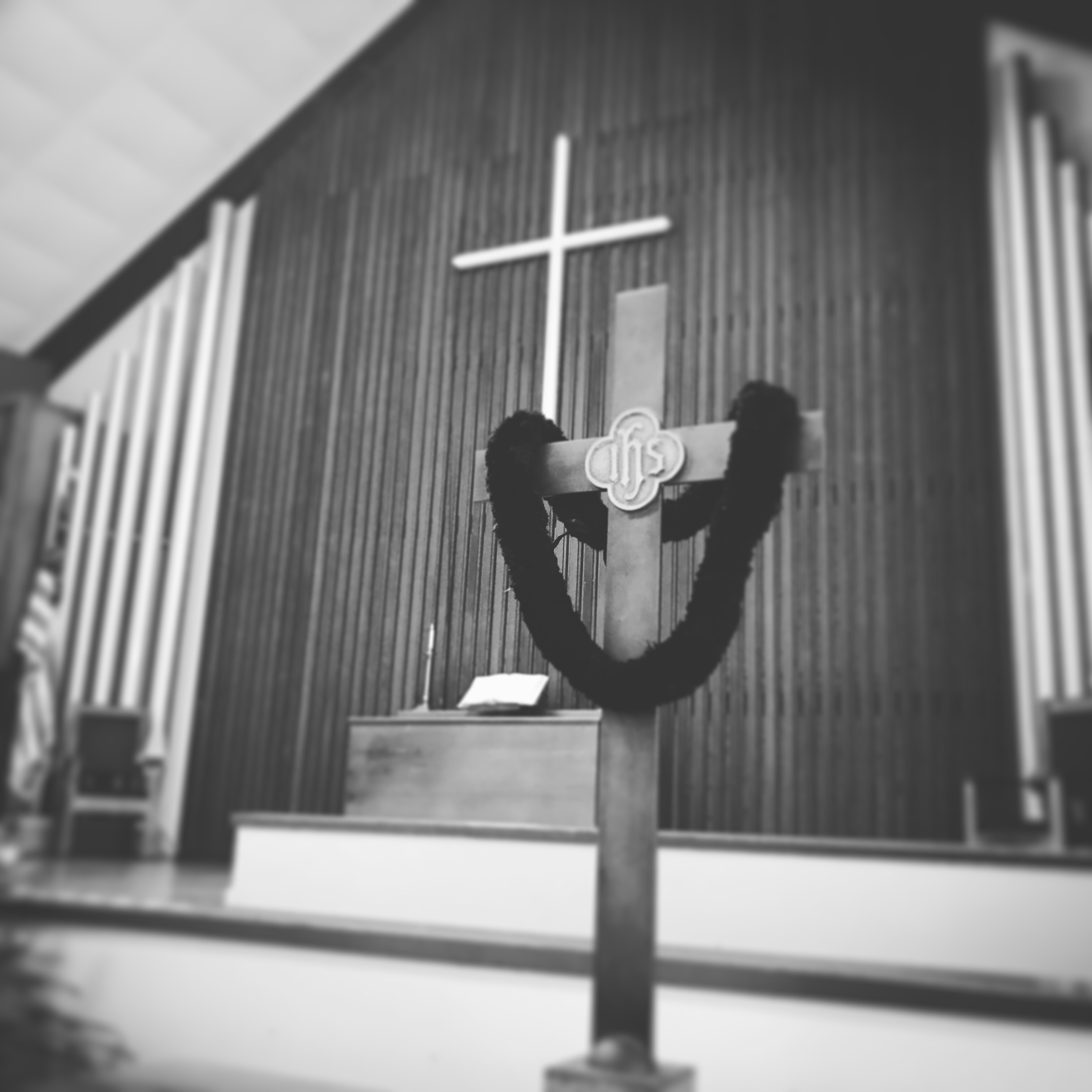
[The Sadducees asked,] “Now there were seven brothers; the first married, and died childless; then the second and the third married her, and so in the same way all seven died childless. Finally the woman also died. In the resurrection, therefore, whose wife will the woman be? For the seven had married her.” – Luke 20:29-33
Tell us another story, Jesus.
Tell us a story in which a woman is valued
for what she brings and makes, and not
because she bears a child to be the heir
to one whom death has claimed.
Tell us a story in which a woman is treasured
and housed and clothed and nourished
because she is a child of God, and not
because she is a womb for children.
Tell us a story in which a woman determines
her home, her work, her speech, her course,
and does not submit her careful conclusions
to the random will of a man.
Tell us a story in which those thrust
to the margins in casual cruelty
rise strong in themselves, and claim their due place
as wealth and privilege wane.
Tell us a story of resurrection,
of life beyond these oppressing tears,
of dancing angels, of children of God,
of all who live and love in God’s sight.
Tell us another story, Jesus.
A poem/prayer based on Luke 20:27-38, the Revised Common Lectionary Gospel Reading for Year C, Proper 27 (32).
The image is Booz (Boaz) and Ruth Collecting Barley Ears by Kazimierz Alchimowicz – 1. AskArt2. AgraArt, Warsaw, 22.03.2009, lot 12529, Public Domain, https://commons.wikimedia.org/w/index.php?curid=19724130.
I highly recommend reading Maren Tirabassi’s poem on this text, “A few thoughts on Luke 20:27-38 for Día de los Muertos.” It redirected my thinking.






